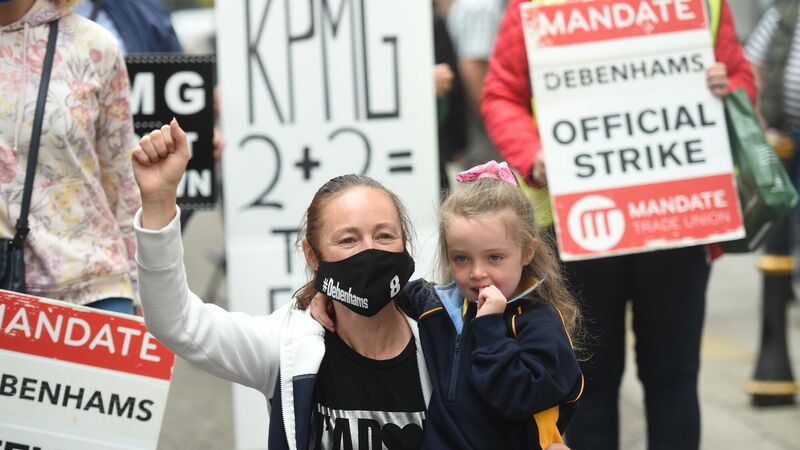Debenhams documentary shows workers fought harder than anyone bargained for

Carol Ann Bridgeman with her daughter, Charlotte. Carol worked at the Mahon Point store and took part in the sit-in protest. Picture: Larry Cummins
Try from €1.50 / week
SUBSCRIBEIn early September 2020, Carol Ann Bridgeman faced a predicament: attend her youngest child’s first day at school or be part of the occupation of a shuttered department store.
“There was a lot of grief at home about it but I had made my decision. If I didn’t do it I would have regretted it more,” she says. The occupation was of Debenhams in Cork city centre, the sister store of her workplace for 15 years at the Mahon branch and, at the time, the subject of a liquidation that had turned Carol Ann’s life upside down.
Already a subscriber? Sign in
You have reached your article limit.
Annual €130 €80
Best value
Monthly €12€6 / month
Introductory offers for new customers. Annual billed once for first year. Renews at €130. Monthly initial discount (first 3 months) billed monthly, then €12 a month. Ts&Cs apply.
CONNECT WITH US TODAY
Be the first to know the latest news and updates
Newsletter
Keep up with stories of the day with our lunchtime news wrap and important breaking news alerts.


Commemorating 100 years since the War of Independence

Select your favourite newsletters and get the best of Irish Examiner delivered to your inbox
Tuesday, February 10, 2026 - 9:00 PM
Tuesday, February 10, 2026 - 12:00 PM
Tuesday, February 10, 2026 - 9:00 PM
© Examiner Echo Group Limited